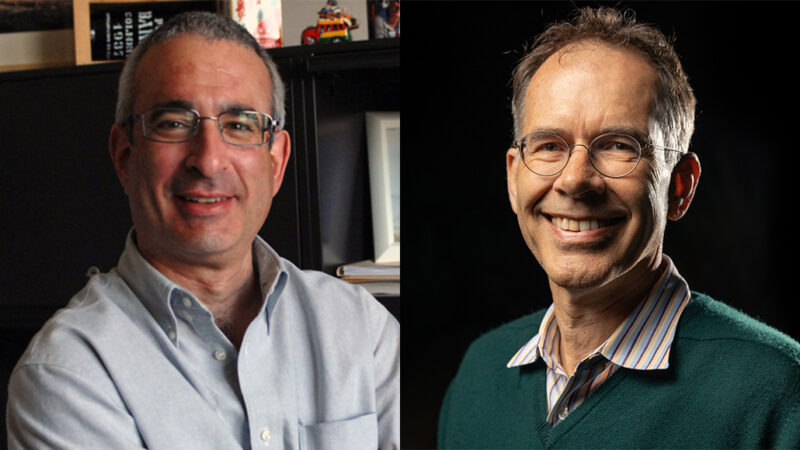This post was originally published on this site
Some of the most insightful — and now most celebrated — studies of such major social issues as minimum wages and immigration have seized on naturally occurring events. Pioneering efforts by three economists to study the effects of real-life economic events that mimic controlled laboratory investigations have won the Nobel Memorial Prize in Economic Sciences.
David Card of the University of California, Berkeley will receive half of the prize of 10 million Swedish kronor (or half of about $1.14 million). The other half will be split by Joshua Angrist of MIT and Guido Imbens of Stanford University. The Royal Swedish Academy of Sciences announced the prize October 11.
Research by the Nobel Prize winners was instrumental in the development during the 1990s of what are known as natural experiments. These investigations rely on naturally occurring differences between groups or populations that either do or don’t experience specific conditions. In this way, social scientists can study, say, how differences in income affect physical health or how immigration influences employment rates.
Natural experiments are especially important because investigators of key social questions, such as whether pollution slows children’s mental development or whether strong public institutions promote economic growth, often can’t assign people at random to treatment and control conditions. It would be unethical, impractical or both.
“The Nobel winners developed techniques that replicate the idea of truly scientific experiments like you would use to test a vaccine, except [the experiments] occurred in the real world,” says economist Phillip Levine of Wellesley College in Massachusetts. These methods “were at the forefront of a ‘credibility revolution’ in economics” that made the field relevant and understandable to the public, he adds. Levine was a Princeton University graduate student with Angrist, and Card was his thesis adviser.
Natural experiments in economics are related to another influential line of research that examines ways to counteract poverty’s harmful effects using field experiments, work that won the 2019 economics Nobel (SN: 10/14/19).
In a key 1994 paper, Card and the late Princeton economist Alan Krueger challenged conventional wisdom in economics that increases in the minimum wage reduce employment. Card and Krueger surveyed fast-food restaurants in New Jersey and a neighboring section of eastern Pennsylvania before and after a minimum wage hike that was instituted only in the Garden State. Full-time employment slightly increased in New Jersey following wage increases, while it declined in Pennsylvania where wages stayed the same.

Further research addressed the complexities of how the minimum wage interacts with employment rates, but it was clear after Card and Krueger’s report that a simple cause-and-effect relationship didn’t exist.
Card also conducted a natural experiment indicating that a huge influx of Cuban refugees to Miami in 1980 did not result in reduced wages and employment for Miami residents with low education levels. That work led Card and others to further explore how new immigration influences the economic standing of native-born citizens and earlier immigrants.
Angrist and Imbens expanded on such work by devising steps to determine under what conditions a natural experiment, such as being given an opportunity to leave school at age 16, affects later outcomes, such as annual income. For instance, the researchers’ method estimated the effect on later income of an additional year of education, which they put at about 9 percent lower for each year lost after age 16, but only for people who chose to leave school early. The estimate excluded earnings histories of individuals who had planned to go to college all along because those people never considered leaving school early.

Card, Angrist and Imbens “have promoted a type of scholarly investigation that is of practical use outside academic journals,” says economist Melissa Kearney of the University of Maryland in College Park, who has studied and worked with both Card and Angrist. The Nobel Prize winners’ research equipped social scientists with “tools to credibly draw causal conclusions about empirical relationships.”
